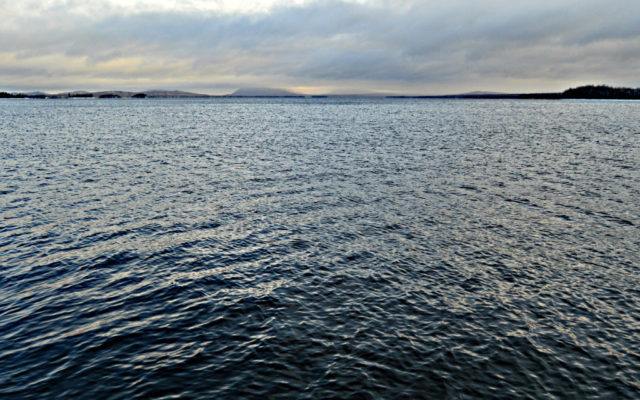
Rubber worms may be bad news for Maine fishery
By Julie Harris, Bangor Daily News Staff
A new free-standing sign went up in LL Bean’s fishing department last week instructing fishermen on how to properly attach and dispose of their soft plastic bait, often referred to as rubber worms.
The sign comes from a partnership between LL Bean and the Maine Department of Inland Fisheries and Wildlife, which seeks to educate the public on how to be responsible anglers.
It’s one of several ways the state is communicating the dangers of the commonly used bait, which stays in the stomachs of most game fish species until they die. Education is the state’s alternative solution to an outright ban of soft plastic bait.
There are no laws on the books specific to this type of lure like there are on lead sinkers and certain unpainted lead head jigs, banned to protect loons and other wildlife. The only state law people break when they allow soft plastic bait to land at the bottoms of lakes and ponds is littering.
Biologists estimate that only 2 percent of the state’s fish are carrying synthetic bait in their stomachs, but the opportunity for the problem to increase is there as more people take up the sport, according to an MDIF&W report to the 129th Joint Standing Committee on Inland Fisheries and Wildlife in 2020.
The state study was done in 2019 to see if there was enough evidence to support passing LD 695, An Act to Require Biodegradable Hooks and Lures for Freshwater Fishing, which was aimed at protecting the health of the sports fishery.
The fish affected by plastic bait increases to 5 percent in waters that are primarily bass fisheries but have other species too, the report said. Biologists’ data was based on their examinations of 26,000 fish of various species.
The real worry is wild native brook trout. Maine has the largest population of this species in the United States and it’s the No. 1 fishery in the state. The bass fishery is No. 2.
Previous legislation seeking to ban the plastics has attracted national bass fishing groups to the discussion. The bottom line is there needs to be a viable alternative before the non-biodegradable soft plastics can be banned, said Mark Latti, communications director for MDIF&W.
Bass can expel the baits either by regurgitation or through their waste stream within nine days, a state biologist said in the study. And water birds seem to be unaffected.
But trout and salmon eat the synthetic bait off the bottoms of lakes and ponds. The soft plastic potentially builds up in their stomachs, leaving little room for nourishing food. The more plastic, the less likely the fish are to feed, slowing their growth and development, one of the state’s fish biologists found.
Other studies have shown the soft plastic lures swell after a long time in the water.
“The life of the lure is much longer than that of the fish that ingests it,” Latti said.
Some manufacturers make soft plastic bait they market as biodegradable. But there is no industry standard to define biodegradable or how long it should take soft plastics to break down, he said.
Plus the fish that consume the lures seem to be affected more adversely than when they eat the non-biodegradable ones, the state report said.
MDIF&W immersed some of the biodegradable lures in water, and there were no visible signs of decomposition after two years, Latti said.
State biologists continue to monitor the fishery for problems related to the lures, but they also are looking at the larger picture of what is affecting trout and other cold-water fish. Those areas include climate change that’s warming the waters, development, invasive species, PFAS and water quality, he said.
Soft plastic bait is a hot button issue in the fishing community and often comes down to bass vs. trout/salmon fishermen. Just look at any social media site where the topic is being vented for a rousing discussion.
But what both sides really want is a healthy fishery.
“If you let people know it is littering and could have an impact on fish, most people want to do the right thing for the environment. Fishermen gladly protect the fishery,” Latti said.